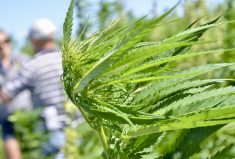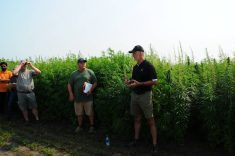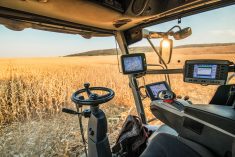Now that Colorado and Washington state have legalized marijuana, and 10 more states have given the nod to industrial hemp production, the clock may be ticking on Canada’s head start in North America.
The latest U.S. Farm Bill has made provisions for the research trials done through universities or state Agricultural Departments, but with so many diverse agronomic regions, real competition for hemp imports is still a long way off, said Shaun Crew, president of Hemp Oil Canada.
“It is the beginning of hemp production in the U.S., but it means that there will be a couple of years of crop trials down there before they figure out what varieties are even going to work,” he said.
Read Also

Precision 4R cuts farm greenhouse gas emissions
Lower areas in your field tend to emit more greenhouse gas, research shows that precision 4R nutrient stewardship practices can help mute the trend
In five years, commercial production of hemp might take off, and local producers will need to work hard to maintain market share.
More from the Manitoba Co-operator website: Farmers high on hemp as returns beat canola
“We need to be really good at what we’re doing before that happens,” said Kevin Friesen, Hemp Oil Canada’s seed production manager.
The fibre plant in Gilbert Plains owned by Robert Jin, operator of Plains Industrial Hemp Processors, is still refining its production equipment, said Jeff Kostiuk, a diversification specialist based in Roblin.
Due to a long series of delays in starting up, and a recent accident where a worker lost an arm, the fibre plant still has 1,000 hemp bales left over to process and is unlikely to contract any dual-purpose varieties this spring, he said.
However, it has begun selling a bagged sweeping compound called “Hemp Shine” made from byproducts of the decortication process, said Kostiuk.


















